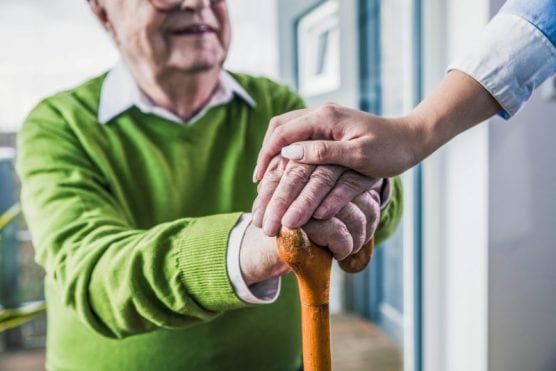As the number of confirmed coronavirus COVID-19 cases continues to rise, officials have ordered seniors 65 and older to self-isolate, as seniors have proven to be more vulnerable to the virus.
This directive has left many seniors anxious, as it may not be an easy task for those who live alone or need to go out for doctor’s appointments, groceries and more.
That’s why the nonprofit CalMatters hosted a webinar with California’s Department of Aging Director Kim McCoy Wade to discuss what it means to self-isolate and to offer tips for those trying to do so.
“This is a big deal in California because one in five Californians is 60 and over,” said Ana Ibarra, a health care reporter and moderator of the webinar. “One of the most common questions we received was what exactly does self-isolation mean. People want to know if they can go to the grocery store (or) if they can go out for a walk.”
“The short answer is yes, but it’s not that simple,” McCoy Wade answered. “In general, yes, if you are at higher risk, you should be staying at home as much as possible — all of us should be staying at home, (as) we’re all in this together.”
Still, while seniors have been advised to stay home as much as possible, the state’s guidelines do make exemptions for “essential activities,” which include grocery shopping, picking up medication and exercising.
That being said, McCoy Wade is advising seniors to start finding ways to meet those needs from the comfort of their homes, such as getting groceries delivered, prescriptions by mail and doing doctor’s appointments over the phone.
“That’s the work we all need to be doing is moving as much of our central services … to the telephone, internet, by mail, or by neighbors,” she said, later adding, “Just like the schools are going to be closed for weeks and months, we’re going to be in this for weeks and months … so take the time to set up that home delivery of groceries, that mail prescription, that Skype account. Get set up for a lot more independent living at home, but we hope deeply supported living at home.”
An essential first step should be to create a list of five people, whether they’re family, friends or neighbors, who can help you accomplish these things if you cannot do so on your own. Be sure to check in with those people daily, as communication is key, McCoy Wade added, suggesting setting up Skype for older family members.
“We are in a different world, and we all need to be reaching out to offer help and to ask for help,” she added.
Though households that are home to multiple generations are going to struggle with self-isolation, public health guidelines still advise completely isolating those who are at higher risk.
“(If it’s) essential that you have some contact, then make double sure that you’re practicing all those public health precautions,” McCoy Wade added.
If you do need to go out, go early, as many grocery stores have begun offering early-morning shopping specifically for seniors. In addition, seniors are still encouraged to exercise, but to do so in a way that protects against transmission.
Whenever outside, be sure to practice social distancing, avoid touching your face or surfaces and wash your hands.
Those who are feeling ill should reach out to their doctor via telephone or email before simply going in unless it’s an emergency.
* * * * *
Always check with trusted sources such as those below for the latest accurate information about novel coronavirus COVID-19:
Johns Hopkins Coronavirus Resource Center
Los Angeles County Department of Public Health
California Department of Public Health
Centers for Disease Control and Prevention (CDC)
World Health Organization
City of Santa Clarita
Like this:
Like Loading...
Related





 Tweet This
Tweet This Facebook
Facebook Digg This
Digg This Bookmark
Bookmark Stumble
Stumble RSS
RSS

























REAL NAMES ONLY: All posters must use their real individual or business name. This applies equally to Twitter account holders who use a nickname.
0 Comments
You can be the first one to leave a comment.